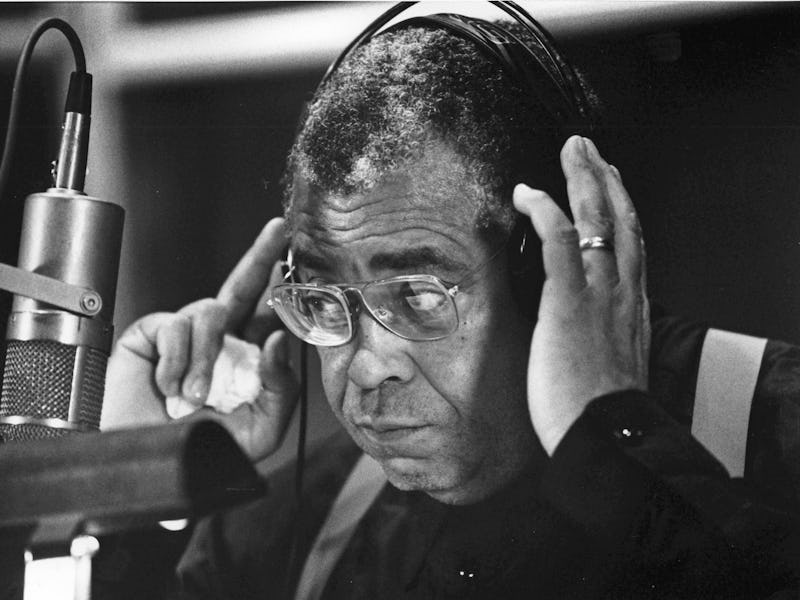James Earl Jones Only Needed One Day to Change Star Wars Forever
The strange story behind the voice that defined the most famous sci-fi movie ever.

On March 1, 1977, just two months before Star Wars hit theaters, James Earl Jones recorded Darth Vader’s dialogue in one day. Now, as the world mourns the passing of Jones at age 93, it’s clearer than ever that his work as Darth Vader was one of the most world-altering roles of his career.
It’s impossible to imagine Hollywood without Jones — from Dr. Strangelove to The Hunt for Red October, nearly every movie in his filmography is a classic — but it’s that one day in 1977 that cemented his legacy. Jones’ influence was so powerful that an image of Darth Vader was projected onto the Empire State Building in honor of his passing. But what’s strange about James Earl Jones’ role as the voice of Darth Vader is the fact that, for several years, he wasn’t credited at all.
James Earl Jones steps up to the mic
Darth Vader in The Empire Strikes Back, played by David Prowse and voiced by James Earl Jones.
Although originally slated for a Christmas 1976 release, several post-production issues delayed Star Wars until the summer of 1977. One such issue was Darth Vader's voice. “I understand that George [Lucas] did contact Orson Welles before he contacted me,” Jones recalled in J.W. Rinzler’s The Making of Star Wars. “I was out of work and he said, ‘Do you want a day’s work?’”
Lucas claimed Jones was “the best actor I could possibly find,” but what’s interesting is the way Jones and Lucas developed the cadence and tone of Vader’s voice. “We figured out the key to work was to keep it on a very narrow band of expression — that was the secret,” Jones said. The actor felt that, given what he knew about the Vader character, this was a man who “never learned the beauties and subtleties of human expression.” And so, while we associate Darth Vader’s voice with deep expression and resonance, this performance was effectively James Earl Jones holding back.
On top of that, Lucas and sound designer Ben Burtt used a technique called “worldizing,” piping Jones’ voice through speakers and re-recording it to give it an extra sense of dimension. The collaboration between Lucas, Burtt, and Jones created a paradoxical voice that was expressionless yet menacing.
Why Star Wars didn’t credit Jones
George Lucas and James Earl Jones in 2006.
While various rumors persist about why James Earl Jones’ name didn't appear in the closing credits of Star Wars, an explanation was offered by Jones himself in 2009, when he said, “When it came to Darth Vader, I said, no, I'm just special effects. But it became so identified that by [Return of the Jedi], I thought, OK I'll let them put my name on it.”
Meanwhile, the man who physically played Vader in the original trilogy, English actor bodybuilder David Prowse, believed his placeholder dialogue would be used in the final version of Star Wars. With Prowse given on-screen credit and Jones only listed with a voice credit in Jedi, it wasn’t common knowledge that Jones was the artist behind Vader’s voice. It was only in 1997, when George Lucas ensured his Special Editions credited Jones in all three installments, that the fact began to escape fan circles and permeate pop culture. Now, of course, Jones and Vader are synonymous.
In 2022, the company Respeecher used voice-cloning techniques to recreate the voice of Darth Vader for Obi-Wan Kenobi. This means the last time James Earl Jones did a significant performance as Vader was in 2016’s Rogue One, although he also appeared very briefly in The Rise of Skywalker. Both recording sessions were even shorter than his recording session for Star Wars. The legacy of James Earl Jones and Vader, then, is a contradiction: It's a voice that looms large in our minds and is felt deeply in our souls, but in the long life of this immensely talented man, he spent so little time performing his most famous role that, for a while, he didn’t even bother to take credit for it.